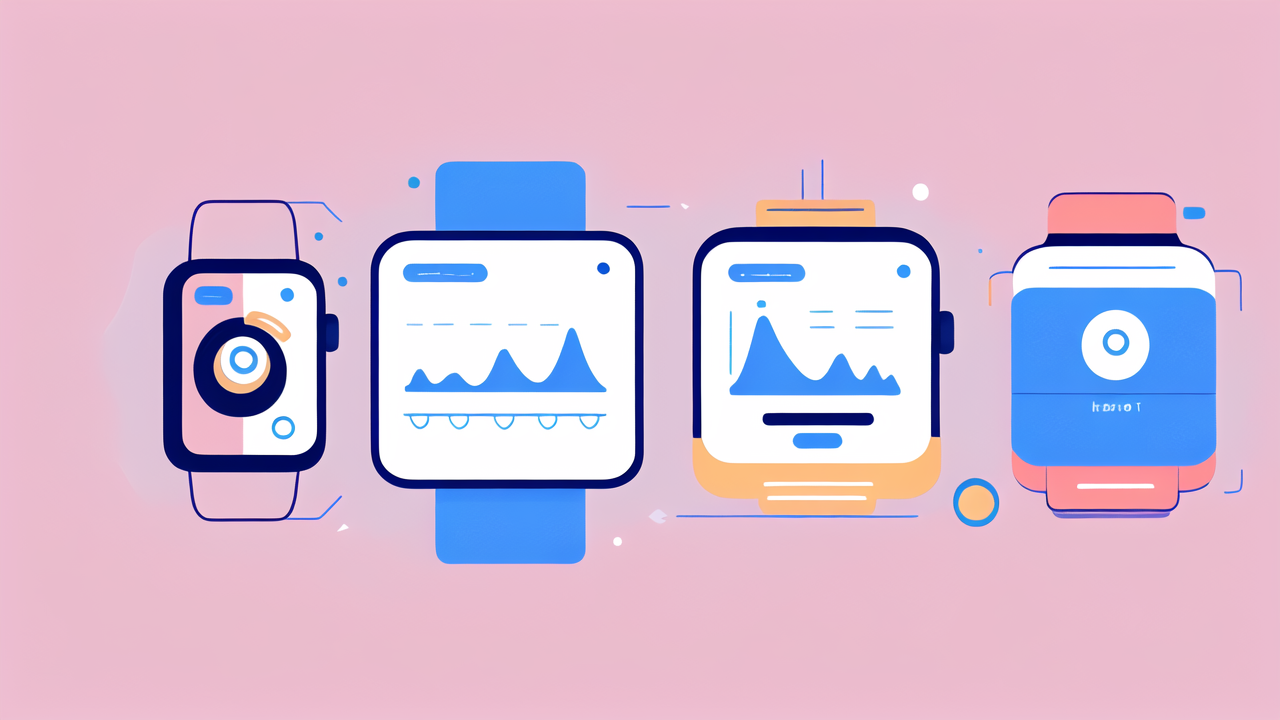Introduction to Smartwatch Health Tracking
The Emergence of Smartwatches in the Healthcare Landscape
Smartwatches have rapidly evolved from simple timekeeping devices to powerful health trackers. These wearable gadgets now play a crucial role in personal healthcare management. They offer real-time health data, making it easier for users to monitor their well-being.

The rise of smartwatches in healthcare began with basic step counting. Now, they can track heart rate, sleep patterns, and even detect falls. This shift has made them valuable tools for both consumers and healthcare providers.
Smartwatches are becoming more affordable and user-friendly. This has led to wider adoption across different age groups. They're no longer just for tech enthusiasts but for anyone interested in their health.
Key Features of Smartwatches for Health Monitoring
Smartwatches come packed with features that make health tracking effortless. Here are some key capabilities:
- Heart rate monitoring
- Step counting and activity tracking
- Sleep analysis
- Stress level measurement
- Blood oxygen level detection
- ECG readings (on some advanced models)
- Menstrual cycle tracking for women
These features use sensors to collect data 24/7. This constant monitoring provides a comprehensive view of one's health. Users can spot trends and make informed decisions about their lifestyle.
Many smartwatches also offer guided breathing exercises and fitness coaching. These features help users manage stress and stay active. Some models even remind users to move if they've been sitting too long.
The Role of Smartwatches in Personal Health Management
Enhancing Lifestyle and Behavioral Insights
Smartwatches are powerful tools for gaining insights into daily habits and health patterns. They collect data on physical activity, sleep, and heart rate throughout the day. This information helps users understand their body's rhythms and needs.

For example, sleep tracking can reveal sleep quality and duration. Users can see how factors like exercise or diet affect their rest. This knowledge allows for better sleep hygiene and overall health.
Activity tracking motivates users to move more. Many watches set daily goals and celebrate achievements. This gamification of fitness can lead to lasting behavioral changes.
Stress monitoring is another valuable feature. By measuring heart rate variability, watches can detect stress levels. They then suggest relaxation techniques or breathing exercises to help manage stress.
These insights empower users to make small, meaningful changes to their lifestyle. Over time, these adjustments can lead to significant health improvements.
Integrating with Health Apps and IoT Devices
Smartwatches don't work in isolation. They form part of a larger ecosystem of health tech. Many integrate seamlessly with smartphones and other smart devices.
Health apps on phones can display detailed analysis of watch data. This makes it easy to track progress over time. Some popular integrations include:
- Fitness apps for workout planning and tracking
- Nutrition apps for logging meals and calories
- Meditation apps for guided mindfulness sessions
IoT devices like smart scales can also connect to smartwatches. This creates a more complete picture of health. For instance, weight data can be correlated with activity levels.
Many watches allow data sharing with healthcare providers. This can be especially useful for managing chronic conditions. Doctors can review trends and make more informed decisions about care.
The integration capabilities of smartwatches make them central to personal health management. They act as hubs, collecting and coordinating health data from various sources.
Future Trends and Challenges in Smartwatch Health Tracking
Technological Advancements on the Horizon
The future of smartwatch health tracking looks promising. Upcoming technologies will make these devices even more powerful. Here are some trends to watch:

- Non-invasive blood glucose monitoring for diabetes management
- Advanced sleep apnea detection
- Improved mental health tracking through voice and text analysis
- More accurate calorie burn estimation
- Skin temperature sensors for early illness detection
These advancements will make smartwatches invaluable for preventive healthcare. They may help detect health issues before symptoms appear.
Artificial intelligence will play a bigger role in data analysis. AI can spot patterns that humans might miss. This could lead to personalized health recommendations.
Battery life is also set to improve. Longer-lasting batteries will allow for more continuous monitoring. This means more reliable data and fewer interruptions in tracking.
Addressing Privacy and Data Integrity Concerns
As smartwatches collect more health data, privacy becomes a major concern. Users need assurance that their sensitive information is secure. Here are key issues that need addressing:
- Data encryption to protect against hacks and breaches
- Clear user agreements on data usage and sharing
- Options for users to control what data is collected and stored
- Compliance with healthcare data regulations like HIPAA
Data accuracy is another challenge. Smartwatches need to provide reliable information for medical use. This requires ongoing improvements in sensor technology and algorithms.
There's also the risk of over-reliance on smartwatch data. Users and healthcare providers must remember that these devices are tools, not medical devices. They should complement, not replace, professional medical advice.
As smartwatches evolve, so must the regulations governing them. Clear guidelines on data use and accuracy standards are essential. This will help build trust and ensure responsible innovation in the field.
In conclusion, smartwatches are transforming personal health tracking. They offer unprecedented insights into our daily health and habits. As technology advances, these devices will become even more integral to healthcare. However, addressing privacy and accuracy concerns is crucial for their continued success and adoption.




Leave a comment
This site is protected by hCaptcha and the hCaptcha Privacy Policy and Terms of Service apply.